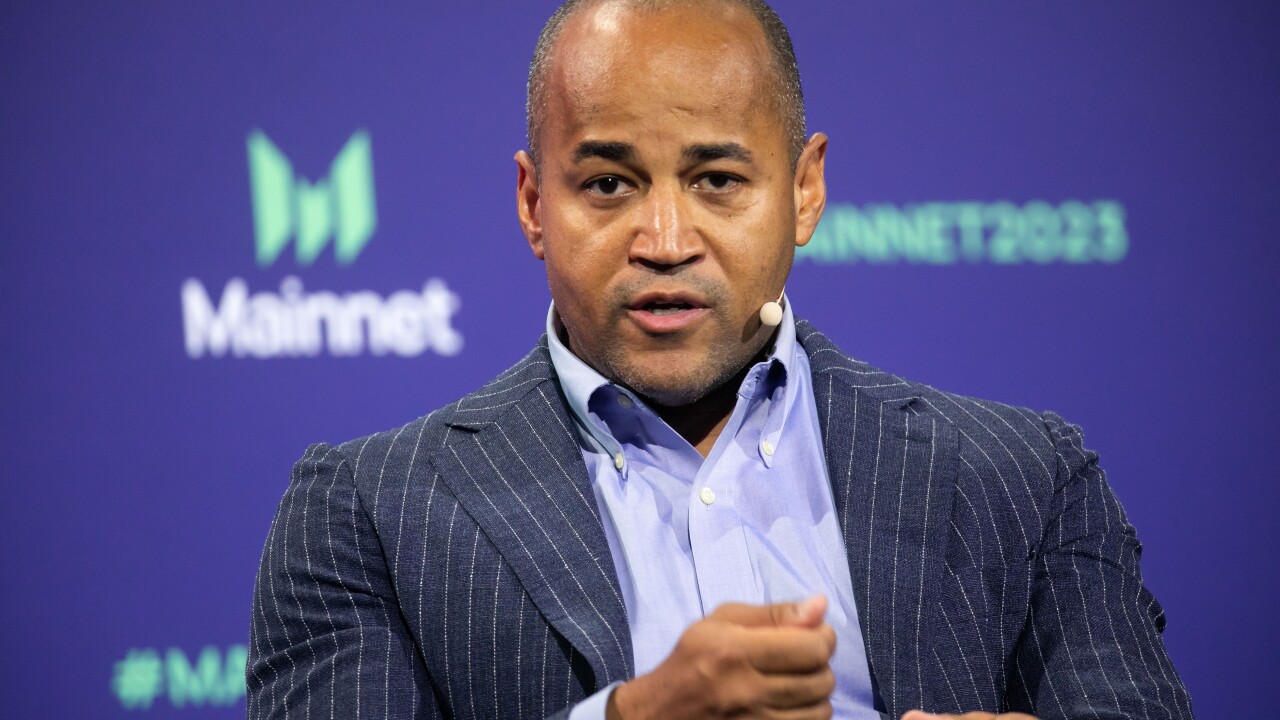At Linn-Benton Bank in Albany, Ore., Stan Starr has been turning in so many business prospects lately that the bank cannot handle the volume.
"I told them I had 10 names but they said, just give us three," he boasts.
Mr. Starr is not a loan officer on a hot streak. The agribusiness executive is actually a member of the bank's board of directors.
Any community bank should be so lucky, but Linn-Benton, a $90 million- asset bank, is reaping the rewards of an aggressive business development strategy that relies heavily on its directors.
Wondering how you might get more out of your board? Some banks have employed innovative methods to motivate and guide directors, sharpening a potent weapon in this era of discontented big-bank customers.
"A community bank's greatest off-balance-sheet asset is its board," says Joseph D. Reid, chief executive officer of Capitol Bancorp, Lansing, Mich. "If a bank ignores this strength, it is missing a great opportunity."
Capitol Bancorp, a $1 billion-asset bank company, increases its selling potential with quarterly receptions honoring a director from one of its 17 bank subsidiary boards.
The selected director then invites business associates, who mingle with each other as well as salespeople from the bank.
"We wind up with a number of people who never would have walked into the bank," Mr. Reid says.
At First Busey Corp., in Urbana, Ill., directors' responsibilities, including business development, are codified in a formal document that does not mince words. "Directors are required to refer at least one new customer to the Busey organization each year," the document reads.
Ed Scharlau, chairman of $972 million-asset First Busey, says the bank's directors have risen to the challenge, generating some big accounts for the bank's newly formed and the newly formed Busey Investment Group. "We've had three cases totaling $10 million that were referred to us for money management," he says.
In one way, the directors themselves are Busey's first business gain. Directors are required to invest a minimum of $25,000 in First Busey Corp. stock, use Busey Visa, Mastercard, and debit cards, and maintain a brokerage account with the bank's investment arm.
Linn-Benton Bank relies on friendly competition among directors to keep new business coming. The catalyst is what Dallas H. Enger, the bank's chief executive officer, calls its "10 Most Wanted," a list of names submitted by directors for sales contacts.
While Mr. Enger says his directors would balk at a minimum referrals requirement, the list keeps the issue of business development in the forefront.
Every month, bank officers report to the board on successes resulting from their referrals, a practice Mr. Enger says keeps everyone thinking about other prospects. "There is a fair amount of peer pressure when we talk about referrals," he says.
Greg Golembe, executive director of the American Association of Bank Directors, Bethesda, Md., says about 80% of banks use directors for referrals. The figure has climbed steadily since the association began monitoring the trend several years ago.
While spurring board members to bring in business has been a rallying cry among community banks for years, Mr. Scharlau says he doubts many organizations get even the one referral per year required at Busey.
What may be keeping banks from effective use of their boards is a failure to integrate a boards' mission with the overall corporate strategy of the bank.
George Freibert, chairman of Professional Banking Services in Louisville, Ky., says one method is to take stock of each director's skills and compare that to the bank's goals.
Strengths will vary but generally, Mr. Freibert says, each board has two to three directors with the motivation and the selling abilities to really help an institution.
These directors, he says, can comprise a business development committee with specific responsibilities and goals outlined in writing. To keep the committee relevant and integrated with bank policy, evaluations should be conducted once or twice a year with feedback from management shared among all committee members.
"One of the criticisms from boards is, they never get much feedback and direction from management," Mr. Freibert says.
Asking directors to be cheerleaders for their bank can reap huge rewards, but only when management provides some guidance.
Directors need to know where the bank is trying to build business - deposits, loans, trust accounts, or investment services.
Linn-Benton's Mr. Enger cites the importance of keeping directors aware of the bank's legal lending limit. Then directors know, he says, "there's no use soliciting a loan for $10 million."
Directors also need to know what customers the bank does not want. A First Busey director once referred a customer who had been turned down for a loan a year before.
Directors are now urged to get in touch with a lending officer before approaching a prospective loan customer.
"Most community banks are still the size where the lending officer will know whether that's a credit we want to do or not," Mr. Scharlau says.
Even a director uncomfortable the sales role can help build business. When directors know the bank's mission and strategy, Mr. Freibert adds, they can share this information with potential customers.
Many directors field questions about Y2K preparedness from existing as well as prospective customers. How they answer could make or break a relationship. First Busey made sure its directors had the right answers by including them in a bankwide Y2K training course.
Knowing more about their bank positions directors well for soft-sell situations such as giving a speech about the millennium bug to a local Kiwanis chapter.
"What the director has done there is not sold anything in particular," says Mr. Golembe, "but rather sold a profile of the bank."
Some directors' discomfort with selling is rooted in the fear of fielding questions about rates and credit policies or hurting relationships with those they refer.
But Linn-Benton's Mr. Starr says those fears are easily managed. "We have an agreement that all business with a customer is channeled through bank officers," he says.
When Mr. Starr hears about a business owner looking to expand or a friend looking to change banks, he discloses his status as a Linn-Benton director and asks permission for a bank officer to contact them.
Gaining directors with a gung-ho spirit like Mr. Starr's starts at the appointment stage. Mr. Golembe says the best candidates are community leaders with membership in clubs, religious groups, chambers of commerce, even a directorship with another organization.
"Some directors are on multiple boards," he adds. "That creates cross- pollination, and banks can certainly set up a program that maximizes connectivity with other groups."
Busey Bank's strategy lies in a diversity that represents different parts of the bank's community. One director is an African-American whose close ties to the sports world resulted in two referrals to major-league baseball players.
Among Capitol Bancorp institutions, directors are CPAs, physicians, insurance agents, retailers, and manufacturers.
With all the business that directors bring in, compensation still remains low or nonexistent.
Many banks consider referrals part of a director's job, and not eligible for separate financial reward. Only 5% of respondents in the survey by the directors' association said they compensated directors for successful referrals. "It's intriguing that there is not widespread compensation to support this," Mr. Golembe says. "I would think it might make (referral programs) more effective."
Whether paid extra or not, Capitol Bancorp's Mr. Reid says the role of directors is more important to community banks, which rely on word-of-mouth referrals, than to large banks with big advertising budgets.
"Our culture of service," he says, "is best demonstrated in the way we attract customers, which is personal."
Ms. Monahan is a freelance writer in Seattle.





